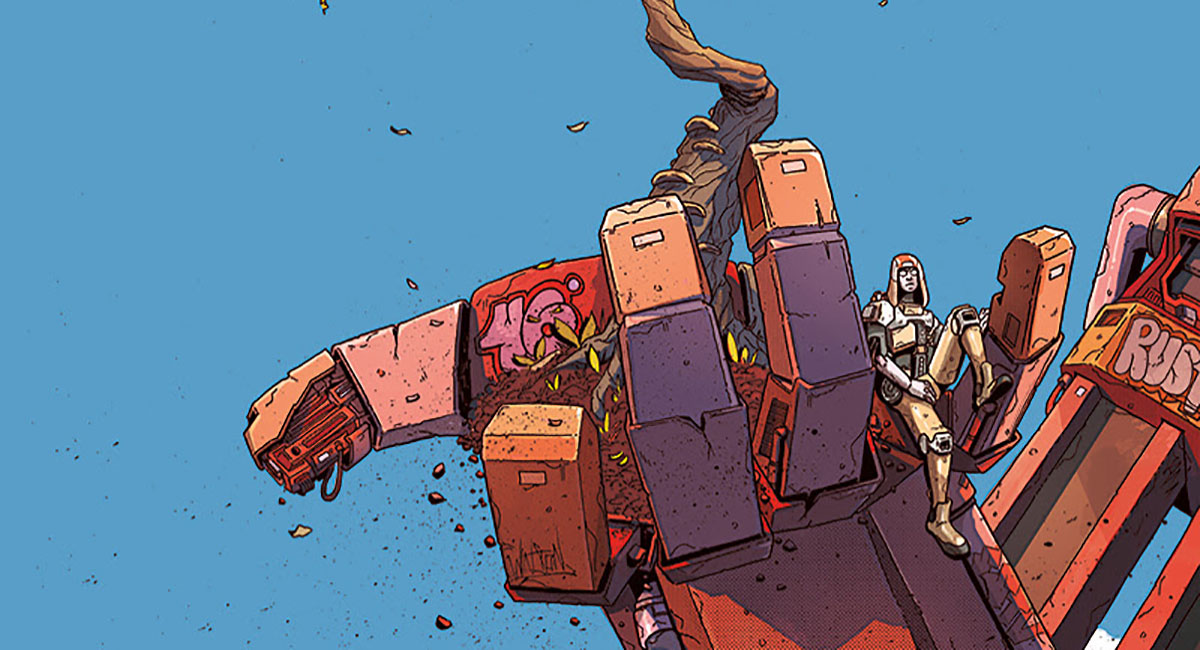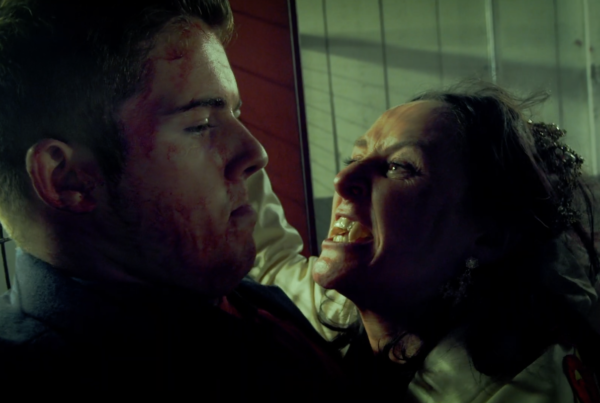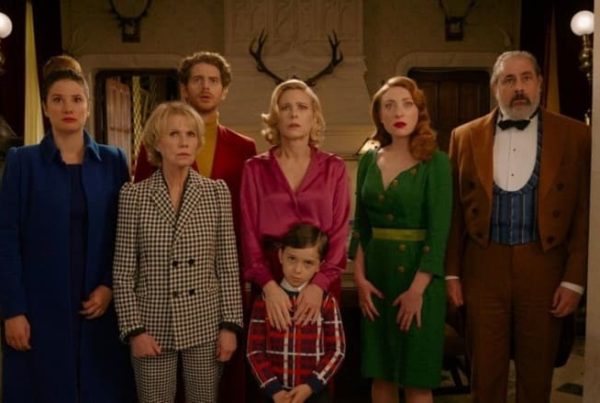Post-apocalyptic meditation on faith, humanity, sectarianism, and more with the promise of giant robot action looming in the future? I’m in, and you should be too. Written by Alex Paknadel with expressive artwork by John Lê, Vault Comics’ new high-concept sci-fi series Giga posits a world centuries after a devastating war waged by giant robots called “giga”. Now, having seemingly swept away all vestiges of the world that was, some “nomad” giga still roam the world doing… well, we’re not too clear on that at this juncture. But most of them sit or lay where they fell and humans, being resourceful types, have moved into their dormant metal bodies. Dead (or deadish) robots as skyscrapers.
This being a sci-fi dark ages sort of story, the dominant social and political paradigm is a kind of techno-religious deal, with a hardline religious order worshipping the giga as gods and treating technology as either sacred artifacts or straight up clerical magic, which isn;t a million miles way from the dark future of Warhammer 40,ooo but if you want to sound literate you can draw a pretty neat parallel with Walter M. Miller Jr.’s classic novel A Canticle for Leibowitz, which also concerned a religious order in a post-collapse setting. Like that book, Giga has loftier aims than flinging Space Marines and Orks at each other, and it shows in the first issue’s rather circumspect storytelling, which raises more questions than it answers and expects the reader to both keep up and be in for the long haul.
 Our protagonist is Evan, a former religious acolyte booted from the order after a scandal and now eking out a living as a scrap-scavenging freelance engineer. He’s black, he’s in a wheelchair because his lower legs are missing, he’s a stoic survivor type who doesn’t bemoan his situation.
Our protagonist is Evan, a former religious acolyte booted from the order after a scandal and now eking out a living as a scrap-scavenging freelance engineer. He’s black, he’s in a wheelchair because his lower legs are missing, he’s a stoic survivor type who doesn’t bemoan his situation.
What narrative direction we’re going to follow Evan on is up for grabs. On the one hand, his old buddy from the order, Mason, now basically a cop, wants Evan to look into rumours of nomad giga behaving weirdly in the forest outside the giga cities, which is a nice, noirish bit of set-up. But Evan has a secret: his friend Laurel, a human-sized robot he hides in his apartment because, for all that the dormant giga are worshipped, actual functioning robots are illegal. Laurel also has some kind of cognitive decay going on that Evan is keen to repair, and is hunting for spare parts to do so.

Meanwhile, out in the hinterlands we have another faction, Dusters, who we are told hate the giga and refuse to live in them. after a few brief references, we meet them when a wounded man is brought into their camp, dying from a brain injury and ranting that “The War was a triangle!” so, inevitably whatever that poor bastard learned will have an impact on Evan down the track.
And that’s your lot.
Giga is… intriguing. The worldbuilding is simply wonderful, the artwork evocative and distinctive, the mysteries it offers up delightfully opaque without being frustrating. You get the distinct sense that there’s a whole world outside the frame of the story so far, just waiting to be discovered, and that’s what the best speculative stories do. It treats the reader like an adult, and the compact between creator and consumer here is mature one: we stay on board and trust that Paknadel and Lê are going to take us somewhere interesting and stimulating, and they rely on us to pick up the crumbs they’re putting down. It’s difficult to judge what the pay off might be after only one issue, but the first few steps of the journey are very promising.





